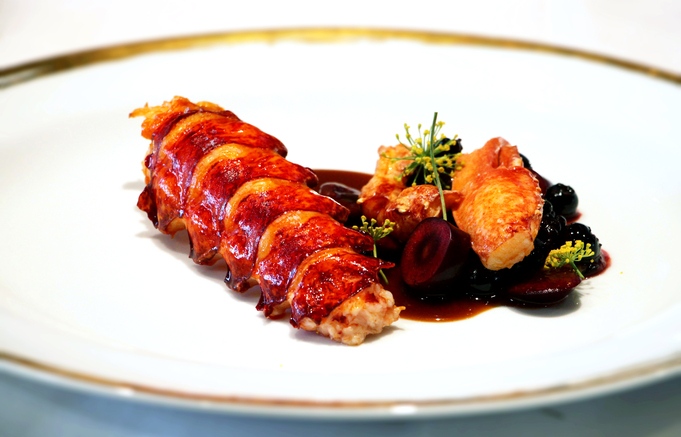Excel as a catering manager: how to serve success on a platter

Introduction
When someone considers starting a career in the food service industry, their immediate thoughts may turn to a chef career or a baking career. However, if you're particularly interested in business but still want to be involved in the food industry, there are culinary careers in food entrepreneurship that offer loads of potential, such as catering manager.
Understanding the role of a catering manager
What does a catering manager do?
A catering manager plays a crucial role in overseeing and managing the supply of refreshments at events, allowing hosts to focus on their guests while expert food and beverage service is carried out by professionals.
What are the qualities of a catering manager?
A successful catering manager possesses a variety of qualities, from excellent communication skills to strong leadership abilities. They effectively coordinate teams, manage client expectations, ensure seamless event execution and stay up to date with catering industry trends.
How important is communication in catering management?
As mentioned above, communication is vital for a catering manager as it facilitates effective coordination with clients, staff and vendors, ensuring clear instructions, smooth operations and customer satisfaction.
Developing the essential catering management skills
What specific skills should a catering manager possess?
Strong leadership skills to interact with clients and staff and communication skills to guide teams are very important, as are problem-solving skills to address challenges and ensure successful event coordination and execution.
How can I enhance my communication and leadership skills?

Hispanolistic/E+ via getty images
Catering managers can improve these skills by actively seeking post-event feedback. This can be achieved by fostering open communication with your team, both internal and external, and your clients. You can also improve your communication skills by attending relevant industry events and networking with others in the field, actively seeking feedback from customers about their experience with your service, and learning key techniques such as maintaining good eye contact, asking open-ended questions, practicing active listening and reading non-verbal cues.
What techniques can I learn to effectively manage a catering team?
One of the best ways of managing a catering team is to apply kitchen staff management techniques. These include:
- Prioritizing training: Making sure your team is well-trained on all aspects of catering events is essential for success.
- Getting to know your staff: Build trust and rapport with your staff on a personal level to better understand their strengths and weaknesses.
- Preparing a rush strategy: Be prepared to respond quickly and efficiently to unexpected events and last-minute requests.
- Improving your customer service experience: Make sure you and your staff are providing customers with an excellent customer service experience that meets or exceeds their expectations.
- Being positive and encouraging: Motivating your staff with positive reinforcement and encouragement is essential for keeping morale high.
Understanding the difference between cook and chef is also crucial since one focuses on food preparation (cook) while the other supervises the kitchen (chef). This can help you create an efficient and productive catering team that is well-equipped to handle any kind of event and ensure you have the appropriate staff to match the occasion.
Planning and organizing events
The event planning process in catering business operations is crucial for ensuring success. There are a wide variety of catering manager responsibilities that come into it, including understanding the client's requirements, budget and event details. Catering managers also need to consider menu selection, accommodating dietary restrictions, estimating quantities and sourcing high-quality ingredients.
How do catering managers plan events?
A great deal of effort goes into organizing an event. If you’re the catering manager, attention to detail and careful planning are critical if you’re to make sure the event comes off seamlessly and successfully. To ensure expectations are aligned and everyone is working towards the same goal, good communication with clients, vendors and the catering crew is essential.
Executing a successful event also involves examining the event site and ensuring the necessary equipment, amenities and food safety arrangements are in place. You will also need to manage transportation, staffing and the schedule and organize pre-event tastings and rehearsals to finalize the details. Of course, you should also put contingency plans in place to address unforeseen issues.
What are some budgeting tips for catering events?
Financial aspects, such as cost calculations, pricing and contracts, are important elements of the event planning process. Catering managers are responsible for creating accurate budgets that consider all expenses, including ingredients, equipment, staffing, transportation and rentals. They also need to handle invoicing, payments and financial data and reporting to identify areas for improvement and make informed decisions for future events.
In addition, efficient inventory management will help minimize waste and control costs, while effective budgeting and financial management enable a catering business to maximize revenue, control expenses and maintain financial stability in what is a highly competitive industry.
How do catering managers choose and manage vendors?
Vendor management is a crucial responsibility for catering managers. Effective vendor selection and management contribute to delivering high-quality services, maintaining cost control and enhancing overall customer satisfaction in catering events.
Managing vendors is a key component when executing any event. You need to establish clear expectations, contracts and timelines to ensure seamless collaboration. This can be achieved via regular communication, site visits and prompt issue resolution.
Menu design and culinary creativity

What goes into designing a successful catering menu?
When designing a catering menu, you need to consider a number of elements, including menu personalization, strategic menu development and dietary restrictions. It also helps if the menu is visually appealing, as compelling graphics and menu descriptions will stimulate the client's interest and lead to upselling and cross-selling opportunities.
How can I cater to diverse dietary preferences and restrictions?
One of the catering manager's responsibilities when designing a menu is to ensure it meets the dietary preferences of the client. By thoroughly researching and understanding various dietary needs, such as allergen-specific requirements, you can create a menu that meets the client's brief.
What are some creative ways to enhance the culinary experience for guests?
There are many ways to enhance the culinary experience of an event. You can hire a specialist, such as a pastry chef who has studied at a pastry school, to contribute unique creations to the menu, or utilize the science of cooking to experiment with flavors and textures. Some of the creative techniques used may include the following.
- Using unique and interesting ingredients: From seasonal produce to exotic spices and rare ingredients, creative ingredients can add complexity and depth of flavor to your dishes.
- Presenting the food with creativity: You could use edible flowers, make your own garnishes, or plate the food in an interesting way to add visual appeal.
- Telling the story behind the food: Whether you share the history of the dish, where the ingredients came from, or how the dish was made, by conveying the story behind the food you can create an emotional connection with your guests.
- Creating a memorable dining experience: you can use music, lighting, and other sensory elements to create a unique atmosphere that will leave a lasting impression on your guests.
- Focusing on the guest experience: make sure your guests feel looked after and are having a memorable experience with delicious food and impeccable service.
Building and managing client relationships
Client relationship management is a vital area when embarking on a catering management career. Maintaining positive client relationships results in satisfied customers who are likely to recommend your catering service to others, leading to potential referrals and an expanded customer base.
How do catering managers maintain good relationships with clients?
To sustain good client relationships, it's critical to actively listen to client demands during the event planning stage. A catering manager should always strive to give precise service that not only makes their client’s vision come to reality but also exceeds their expectations.
Catering managers should also ensure that they foster a friendly and professional atmosphere, meet deadlines, and keep open lines of communication to address any issues or concerns that a client may have. Being receptive to feedback can help create long-term relationships and maintain a loyal customer base.
What are some effective strategies for customer satisfaction in catering?
Tailoring what the business offers to meet each client's specific needs and preferences, such as considering dietary guidelines and cultural requirements, can be a rewarding strategy for achieving customer satisfaction. Another is handling client feedback and complaints effectively. Reaching out to clients to gather feedback and address any lingering concerns helps demonstrate your commitment to long-term customer satisfaction.
How can I handle client feedback and resolve issues professionally?
The most professional way to handle client feedback and resolve an issue is to actively listen and acknowledge the client's feedback. When resolving an issue, it's important that there is transparency and open communication between yourself and the client.
Offering a personalized resolution to the issue is also important, as this shows that you have taken the time to consider their individual needs. Whether it’s a small tweak or an extra service, demonstrating that you value their feedback and are willing to go the extra mile to resolve the issue can greatly improve customer satisfaction.
Additionally, offering an apology for any misunderstandings and thanking them for bringing the issue to your attention goes a long way in building trust and loyalty.
Budgeting and financial management

Hispanolistic/E+ via getty images
How do catering managers create and manage budgets for events?
As already mentioned, budgeting and financial management are essential facets of being a catering manager. You need to ensure cost efficiency without compromising the quality of the event or guest satisfaction.
To do this effectively, a catering manager needs to carry out the following during the pre-planning stage of an event:
- Outline the specific financial goals
- Consider all expenses and revenue sources
- Negotiate with vendors
- Track expenditures and adjust as needed
What cost-saving techniques can be employed in catering operations?
Cost-saving techniques in catering operations can include optimizing menu planning and ingredient sourcing, negotiating better deals with suppliers, streamlining operations and leveraging restaurant technology for inventory management and cost tracking.
How can I ensure profitability while maintaining high-quality service?
A catering manager can assure profitability while providing high-quality service by carefully assessing expenditures, enhancing operational efficiency, monitoring customer satisfaction and conducting frequent financial reviews.
Event execution and post-event evaluation
How do catering managers ensure smooth event execution?
From menu planning to customer service, a catering manager can ensure smooth event execution through efficient coordination and supervision to guarantee the event is completed to the client's specifications.
Furthermore, a catering manager should ensure that the event runs smoothly by taking responsibility for all aspects of the event planning and execution process. This includes overseeing staff members on site, communicating with vendors, properly managing timelines and expectations, and anticipating any potential issues that may arise during the event.
What are some common event issues and how do catering managers handle them?
When executing an event, issues can always arise. These can range from last-minute changes to equipment malfunction and can threaten to derail your event. You can mitigate the potential harm they can cause by being proactive, communicating effectively and ensuring you have contingency plans in place.
How do catering managers evaluate their performance after an event?
Post-event evaluation is critical because it allows catering businesses to collect feedback, which aids in identifying strengths and shortcomings and assessing client satisfaction. Post-event evaluation helps you make more informed judgments about menu offerings, service quality and operational efficiency for future events.
How to become a catering manager
Qualifications and education
A culinary arts degree not only equips you with an understanding of fundamental culinary techniques, but it means you also learn the business skills essential for being a successful catering manager. A recent study revealed nearly 60% of successful catering managers had attended culinary school and attained a bachelor’s degree in the culinary arts. So, while you don't necessarily need a qualification to become a catering manager, it’s highly recommended you gain the necessary skills and understanding of the catering industry by enrolling in a culinary program.
Start your culinary adventure
Master the key elements of the culinary arts and business management in an ideal combination for the budding entrepreneur.
Take charge of your culinary journey
Combining an academic and practical immersion in the culinary arts with managerial and business skills, this is the degree to accelerate your career to the next level.
Already a catering manager? To learn more about how to advance your career as a catering manager, read how to start a catering business.
Conclusion
A catering manager's career combines culinary arts with business acumen to execute and deliver exceptional food and drinks at events such as conferences, birthdays and weddings. By supervising all elements of catering operations, such as creative menu development, budgets and vendor management, you can smoothly execute a successful event that meets and often exceeds client expectations.


